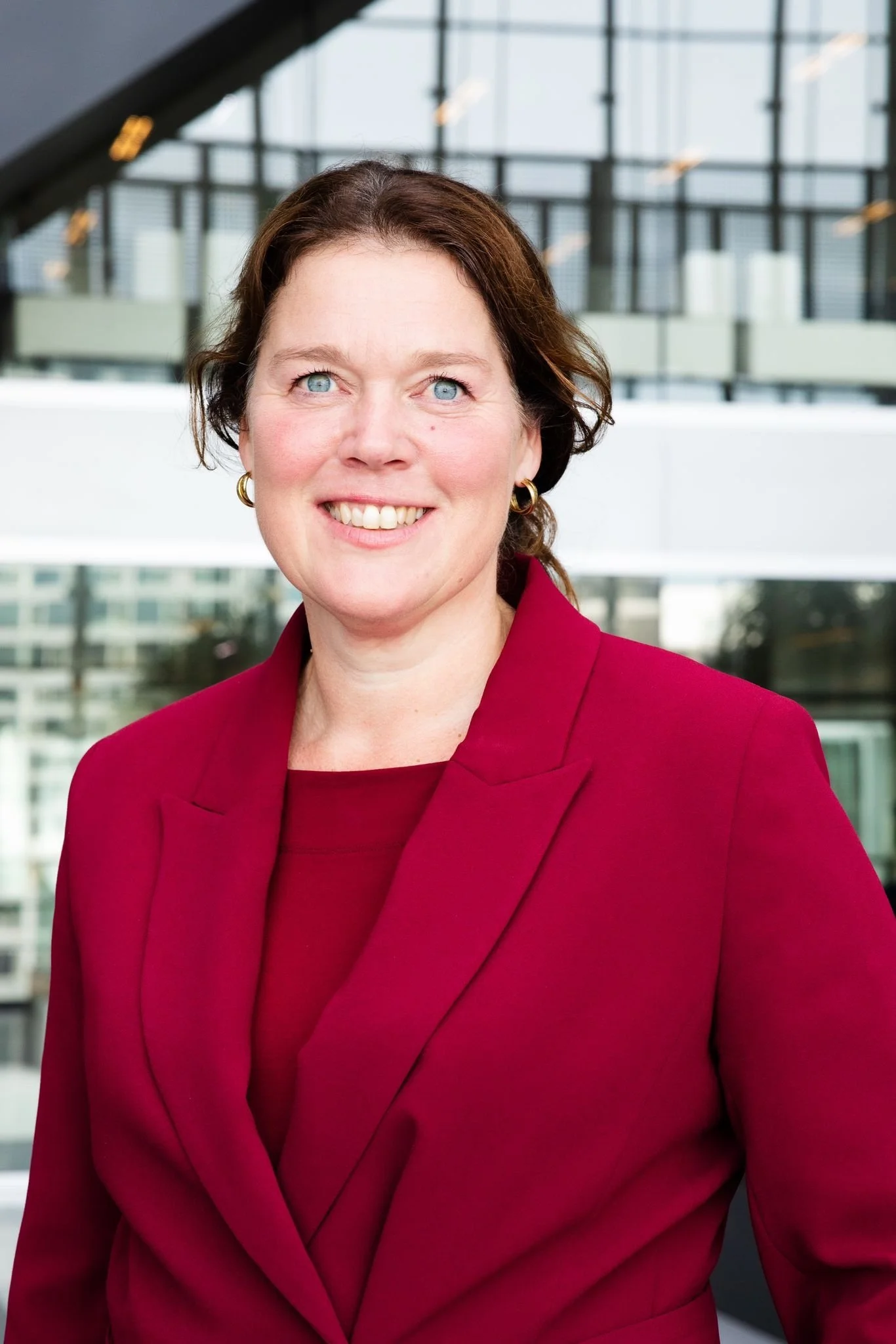In Conversation
In Conversation with Pascalle Grotenhuis, Directeur Generaal Internationale Samenwerking, Ministry of Foreign Affairs, The Netherlands
One of the key goals of Start-Up Night Africa is to discuss the critical role of investment and the power of partnerships to address the gender finance gap for women entrepreneurs in Africa. We speak to Pascalle Grotenhuis, Directeur Generaal Internationale Samenwerking, Ministry of Foreign Affairs, The Netherlands, who has spent many years on the continent in her role as an Ambassador and gender key champion, to get her insights on finding effective solutions to this and other challenges to creating a more inclusive business environment for women on the continent.
Pascalle Grotenhuis (image credit: Ann Sophie Falter)
Q: Bridging the gender gap and creating more equitable access to finance for Africa’s women entrepreneurs remains a challenge. What can be done better or differently to improve the flow of capital to women-owned businesses in growth mode?
A: There are three points of entry to overcome barriers and the access to finance gap that can reinforce each other when coming together.
Concessional access to finance (to lower perceived risks of financiers).
Creating an enabling environment for women entrepreneurs (developing gender sensitive images, products and services)
Creating an equal level playing field (from removing inhibiting law, legislations and or interpretations to facilitating law, legislations and or interpretations)
Improvements can and should be made in creating more synergy among policymakers, donors, MDBs and other financiers to facilitate implementation, sustaining and scaling up efforts and activities.
Q: Creating access to market opportunities is also key to success for Africa’s women entrepreneurs, as it is for their counterparts in The Netherlands. How can initiatives such as Start-Up Night Africa play a role in opening up new opportunities for business and collaboration for women?
A: Start-Up Night Africa is great in many ways. And I would like to congratulate the Lionesses of Africa and Melanie Hawken for making this a success. It was our pleasure to support these efforts! To answer your question:
It assists in changing perceptions as many financiers picture WSME as small holders that need micro credit whilst there are so many strong business women out there with great business case for serious investments.
It helps in bridging finance gaps among successful entrepreneurs to become more successful as this group is not often targeted by others.
And perhaps most significant; it provides for a pressure cooker of key stakeholders that allows for deals to actually take place. Great that this has also been the case in the latest Start-Up Night Africa event in The Netherlands.
Q: The Africa Strategy of the Netherlands 2023-2032 has recently been announced, with a greater focus on investing more sustainably on the continent. Please share with us some of the highlights of the strategy and what this could mean for creating a more equitable business environment for women entrepreneurs.
A: The Netherlands is sharpening the focus of its collaboration with Africa by investing more, more specifically, and more sustainably, in both the continent and in relations with African countries. The strategy is intended to position the Netherlands and the European Union (EU) as attractive partners for countries in Africa. Doing so will facilitate collaboration between the Netherlands and its African partners in order to address cross-border issues such as migration, trade, the energy transition, security and food security. It’s central point is the importance of equal partnerships and as such this facilitates localization. For more information: Africa Strategy: government presents integrated approach to cooperation with Africa | News item | Government.nl
Q: Women play a key role in all aspects of the Africa Strategy and are central to creating inclusive societies and the achievement of the UN’s Sustainable Development Goals. How central are women entrepreneurs and their businesses in helping to drive progress towards achieving these goals?
A: Women entrepreneurs are great for investors but also for impact investors as they generally work more sustainable and inclusive. As such they tend to provide work for other women and minorities with better conditions and future perspectives, and invest locally in a sustainable manner. Studies pointed out that WSME may invest /reinvest up to 90% of their income in the education, health and nutrition of family and community. Though some may focus on the contribution of development we should not forget that investing in WSME is also and above all a great opportunity for investors. There is a whole market with huge potential out there to do business.
Q: Is there one key message that you would like investors and business decision-makers to take-away from Start-Up Night Africa that could make a difference to the future growth and investment opportunities for women entrepreneurs?
A: Africa is rich with women entrepreneurs. In fact, the continent has the highest proportion of women entrepreneurs in the world, with OECD research revealing that more than a quarter of all businesses were either started or are run by women. In Europe, by contrast, the rate of entrepreneurial activity among women is just 5.7%, per figures from the European Investment Bank. Yet, despite those high levels of entrepreneurial activity, African women draw the short straw when it comes to funding. I believe if you want to make a smart investment, invest in women, invest in female entrepreneurs in Africa. Empowering these women is vital in unlocking the continent’s full potential, now and in the future.


